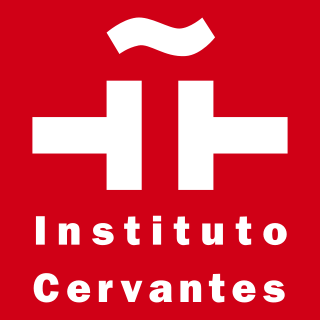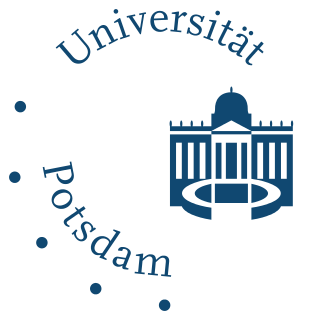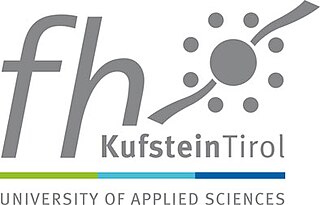
Postgraduate or graduate education refers to academic or professional degrees, certificates, diplomas, or other qualifications pursued by post-secondary students who have earned an undergraduate (bachelor's) degree.

Instituto Cervantes is a worldwide nonprofit organization created by the Spanish government in 1991. It is named after Miguel de Cervantes (1547–1616), the author of Don Quixote and perhaps the most important figure in the history of Spanish literature. The Cervantes Institute is the largest organization in the world responsible for promoting the study and the teaching of Spanish language and culture.

Education in Portugal is free and compulsory until the age of 18, when students usually complete their year 12. However, only one of those requirements is necessary. The education is regulated by the State through the Ministry of Education. There is a system of public education and also many private schools at all levels of education. The first Portuguese medieval universities, such as the University of Coimbra, were created in the 13th century, and the national higher education system is fully integrated into the European Higher Education Area.
The Master of Education is a master's degree awarded by universities in many countries. This degree in education often includes the following majors: curriculum and instruction, counseling, school psychology, and administration. It is often conferred for educators advancing in their field. Similar degrees include the Master of Arts in Education and the Master of Science in Education.
Education in Armenia is held in particular esteem in Armenian culture. Education developed the fastest out of the social services, while health and welfare services attempted to maintain the basic state-planned structure of the Soviet era, following Armenia's independence in 1991. Today, Armenia is trying to implement a new vision for its higher education system while pursuing the goals of the European Higher Education Area. The Ministry of Education and Science oversees education in the country.
The Certificate in TESOL (CertTESOL) is an accredited professional qualification awarded in the teaching of "English for speakers of other languages" (ESOL) by Trinity College London. It is a commonly taken teaching qualification in the field of English language learning and teaching (ELT). It is one of various TEFL qualifications available. The Trinity CertTESOL is regulated by the UK's Office of Qualifications and Examinations Regulation (Ofqual) which regulates qualifications, examinations and assessments in England.

The University of Potsdam is a public university in Potsdam, capital of the state of Brandenburg, Germany. It is mainly situated across three campuses in the city. Some faculty buildings are part of the New Palace of Sanssouci which is known for its UNESCO World Heritage status.
Advance HE is a British charity and professional membership scheme promoting excellence in higher education. It advocates evidence-based teaching methods and awards fellowships as professional recognition for university teachers. Founded in 2003, the Higher Education Academy was responsible for the UK Professional Standards Framework for higher education practitioners and merged to form Advance HE on 21 March 2018.
The TestDaF, formally Test Deutsch als Fremdsprache, is a standardised language test of German proficiency for non-native German speakers. It aims at people who would like to study at, or academics and scientists who want to work in, German universities. The test is run by the TestDaF-Institut.
Higher education in Portugal is divided into two main subsystems: university and polytechnic education. It is provided in autonomous public and private universities, university institutes, polytechnic institutes and higher education institutions of other types.

The European School of Economics (ESE) is a private college of higher education. It is accredited by ASIC, validated by Richmond, The American International University in London, and is an officially approved Learning Provider. ESE offers UK bachelor's degree, master's degree, MBA, and specialised short programmes at its centres in London, Rome, Milan, Florence, and Madrid.

The Al-Madinah International University is an independent educational institution in Malaysia. It was established in 2006, founded on Islamic principles and values.
The Malaysian Qualifications Framework or the MQF is a unified system of post secondary qualifications offered on a national basis in Malaysia. It is administered by the Malaysian Qualifications Agency (MQA), a statutory body under the purview of the Ministry of Higher Education (MOHE).
Higher education in Ukraine operates several levels, all of which are regulated by the Ministry of Education and Science of Ukraine. In early 2016, Ukraine had 802 universities, but the Ministry intends to lower that number to 317. Ukraine had 1,586,700 higher education students in 2016-17.

Vistula University is a non-public academic higher education institution based in Warsaw, Poland. It was established in 1992 as the University of Insurance and Banking. Its branch since 2019, is Aleksander Gieysztor Academy of Humanities in Pułtusk.

The University of Applied Sciences Kufstein, is an Austrian Fachhochschule in Kufstein, Tyrol.
The Classic Private University is a university in Ukraine.
The Institute of Intercultural Management and Communication or ISIT is a French Grande École.

The National Agency for Quality Assessment and Accreditation is the authorised agency of the Spanish government whose aim is to provide external quality assurance for the Spanish higher education system and to contribute to its constant improvement through evaluation, certification and accreditation.
Teaching English as a second language (TESL) or Teaching English to speakers of other languages (TESOL) are terms that refer to teaching English to students whose first language is not English. The terms TESL, TEFL, and TESOL distinguish between a class's location and student population. TEFL describes English language programs that occur in countries where English is not the primary language. TEFL programs may be taught at a language school or with a tutor. For some jobs, the minimum TEFL requirement is a 100-hour course; however, the 120-hour course is strongly recommended as it often yields higher-paying teaching positions. TESL and TESOL include English language programs that occur in English-speaking countries. Often, these classes serve populations who have immigrated there or whose families speak another language at home. TESOL is an umbrella term that includes TEFL and TESL programs and is a widely accepted term in the field of English language teaching. TEFL teachers may be native or non-native speakers of English. Teaching English as a second language is regarded as an outdated term because students may speak more than one language before they study English. Students who are learning English in their home country, typically in a school, are EFL students. More generally, students learning English are referred to as ELLs.








